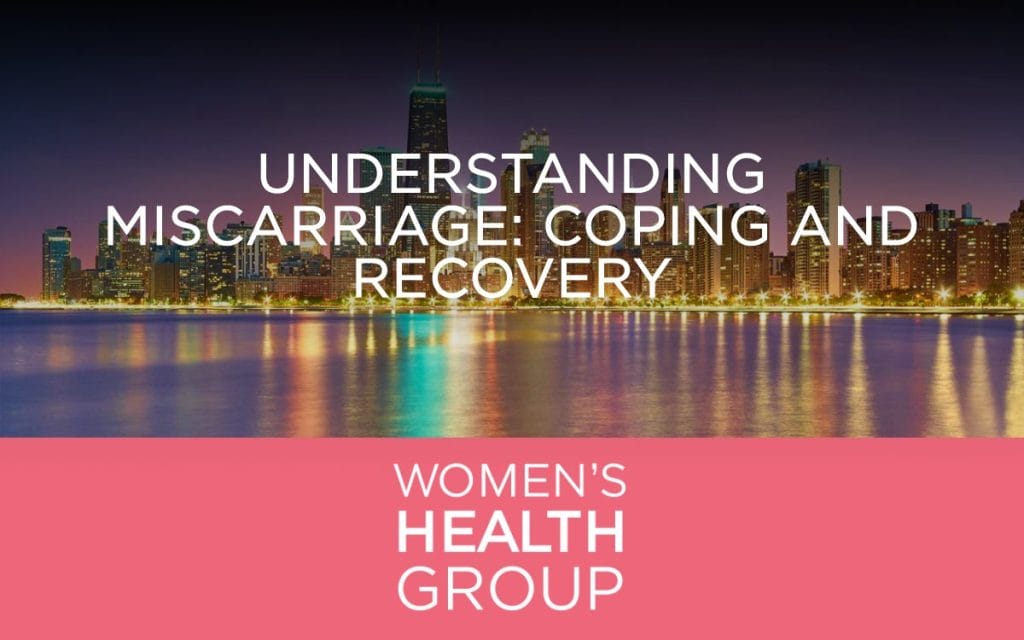Understanding Miscarriage
A miscarriage is a heart-wrenching loss experienced by many women across the world, but it often stays hidden behind the curtains of silence and stigma. As a trusted Women’s Health Group of obstetrician-gynecologists based in Chicago, Illinois, we strive to provide transparent, useful, and compassionate healthcare information. One of our missions includes breaking the silence surrounding miscarriage while providing miscarriage support for those who need it.
Miscarriage is the spontaneous loss of a pregnancy before the 20th week. Symptoms can include vaginal bleeding, cramping in the lower abdomen, fluid or tissue passing from the vagina, and loss of pregnancy symptoms. In some cases, a miscarriage might happen without any noticeable symptoms at all.
Coping with Miscarriage
The physical healing after a miscarriage is often quicker than the emotional recovery. Here are some ways to cope with the emotional effects of a miscarriage.
Allow Yourself to Grieve
Most women experience intense feelings of sadness, anger, guilt, and confusion after a miscarriage. Allow yourself to feel these emotions and understand that it’s okay to grieve. Give yourself time to recover emotionally.
Join a Miscarriage Support Group
Miscarriage support groups can play a significant role in the healing process. Sharing your feelings and experiences with others who have experienced the same loss can offer comfort and hope.
Seek Professional Help
If you feel overwhelmed by grief, don’t hesitate to seek professional help. Consider speaking to a mental health professional who specialises in grief counseling.
Talk to Your Partner
Miscarriage is a loss for your partner too. Whether they express their feelings openly or cope in their own way, it’s important to communicate and support each other.
Physical Recovery after Miscarriage
The physical recovery differs depending on how far along the pregnancy was. Heavy bleeding and pain should decrease within a few hours after the miscarriage. Light bleeding or spotting can continue for one to two weeks.
Here are some key points to consider for physical recovery:
Resuming Normal Activities
Women can usually resume normal activities within a few days of a miscarriage. Avoid any strenuous activity until your doctor gives the go-ahead.
Cleanliness after Miscarriage
Maintain cleanliness to avoid infections. Avoid sexual intercourse, using tampons, and taking baths until your doctor advises it is safe to do so.
Follow-up Visit
A follow-up visit to the doctor is crucial to ensure the miscarriage is complete and the uterus is back to its normal size.
Subsequent Pregnancy after Miscarriage
Most women can start trying to conceive again as soon as they feel physically and emotionally ready. It’s essential you discuss this with your healthcare provider before making a decision.
Reducing Risk of Miscarriage
Miscarriage cannot always be prevented, as most are caused by chromosomal abnormalities that are beyond our control. However, some lifestyle changes can positively affect your possibility of a healthy pregnancy:
• Regular exercise
• Balanced diet rich in folic acid
• Regular prenatal visits
• Avoidance of alcohol, drugs, and smoking
More information is available at the Mayo Clinic about miscarriage support, precautions to be taken, and other helpful resources.
Understanding is the First Step
Understanding what a miscarriage is, why it happens, and that it’s not your fault is the first step towards healing. Make sure to get the physical and emotional support you need to navigate this difficult time. One in four pregnancies end in miscarriage, making it a sadly common experience, but each woman’s journey through it is unique. Remember, there is no “right” way to grieve or recover, and it’s essential to do what feels best for you. Don’t hesitate to reach out to health professionals for miscarriage support. You are not alone.




